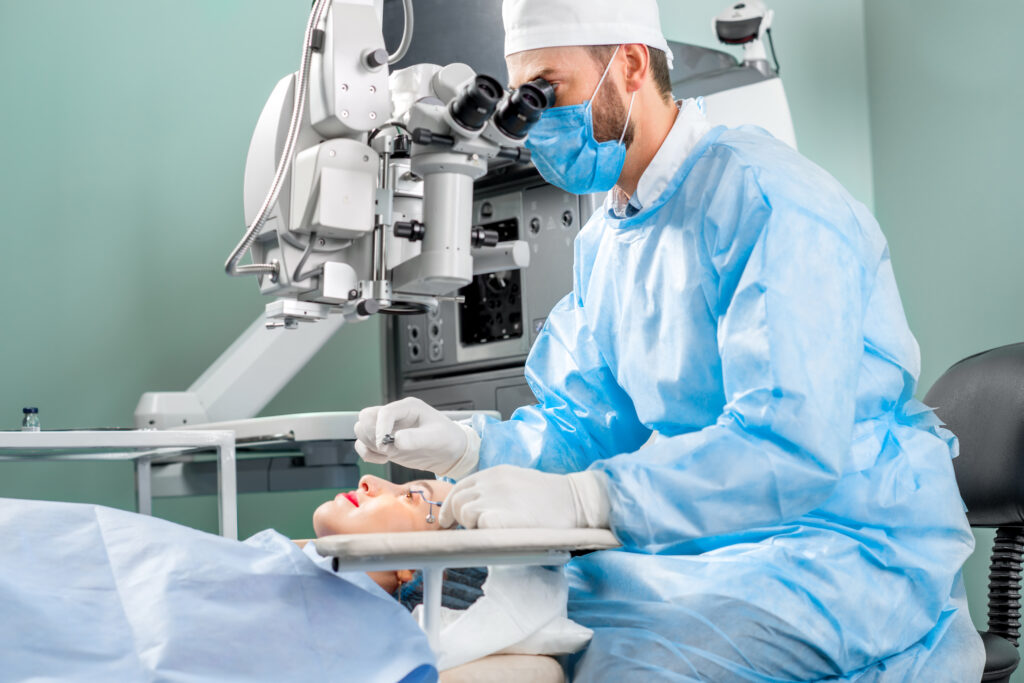
About one in six people over the age of 40 have cataracts, with that figure reaching nearly 50% for patients over 80. Just because it is common does not mean it can be ignored, however. When patients first discover that they have cataracts — either by noticing their vision getting progressively hazier or via a comprehensive eye exam — they often ask the team at Berks Eye when they should seek treatment. Here is what our doctors have to say:
It Doesn’t Need to Be Immediate
Very few patients find out they have cataracts and schedule an appointment for surgery on the spot. The reason for that is that if you are only just learning you have cataracts, your vision is probably only mildly impaired rather than in dire need of correction. Once you have your diagnosis, you can monitor for the known symptoms of cataracts like blurry vision, sensitivity to light, diminished ability to see colors and halos around lights, so you know when action is necessary.
At the Same Time, Procrastinating Won’t Change Anything
By nature, cataracts get progressively worse. Delaying surgery in the hope that your eyes may get better on their own will not prove successful. If you know you will need cataract surgery eventually, you might as well schedule it sooner than later so that you spend less time struggling with your sight in the interim.
Moreover, because cataracts cannot redevelop on an intraocular lens (the artificial lens that your surgeon uses to replace your cloudy natural lens), you do not need to worry about taking action “too early.” After surgery, there is no threat of cataracts returning — regardless of the age at which you have the surgery.
When Cataracts Start Causing Significant Problems
If you are like most patients, you will probably opt for surgery at the point where cataracts measurably impact your sight. Once cataracts cause problems with everyday activities like reading, driving or seeing at night, your quality of life decreases appreciably, as does your ability to function independently. Since cataract surgery is a safe, practical and effective way to clear up your sight, it makes sense to pursue it at the point where the side effects cannot be ignored.
Optimal Timing Can Differ from Patient to Patient
Doctors cannot predict the exact time when a person should have cataract surgery since cataracts progress at different rates from patient to patient. One patient’s tolerance for early- and mid-stage cataracts may be different than another’s.
What the eye doctors at Berks Eye can do is continue to monitor your cataracts with regular examinations and make professional recommendations based upon what they notice and your own stated preferences. Together, you can devise a plan that is best for your unique eyes and lifestyle.
To meet with one of our four outstanding cataract surgeons (Dr. Domenic Izzo, Jr., Dr. Peter Calder, Dr. Francisco Tellez and Dr. Kasey Pierson), please call (610) 372-0712 or schedule an appointment online.
 1802 Paper Mill Road, Wyomissing, PA 19610
1802 Paper Mill Road, Wyomissing, PA 19610

